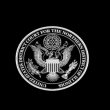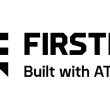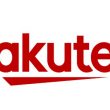NEWS BRIEFS
E911 Institute honors ‘extraordinary’ individuals
The E911 Institute recently honored New York State Assemblyman David Koon, Kristy Wikliff of Southlake, Texas, and Jim Moore of Nashville, Tenn., for their efforts in promoting the deployment of E911 emergency communications.
Koon was cited for his work in securing a New York State auditor’s report on “misspent 911 funds” and in passing legislation to modernize the state’s emergency call centers. Six-year-old Wikliff was credited with saving her father’s life by remaining calm when he went into diabetic shock, calling 911, and then following the dispatcher’s instructions.
Moore, front man for The Animal Band, was cited for the creation of a public service announcement that is being shown on television, and the song “Call 911,” which has been performed in “hundreds of schools across America” since 1992, according to the E911 Institute. The band recently released a DVD based on the song that will be released to movie theaters and video stores on March 10.
Nextel, Verizon Wireless settle P2T suit
Nextel and Verizon Wireless announced that they have “amicably” settled two lawsuits filed last year.
Verizon Wireless sued Nextel in June 2003, alleging that Nextel gained unauthorized possession of two prototype push-to-talk handsets and confidential performance-related information.
Nextel sued Verizon Wireless in September 2003 regarding the latter’s “unsubstantiated” marketing claims.
EFJohnson to deploy Project 25 system in Alaska
EFJohnson announced it has been awarded a $663,000 contract to deploy Project 25-compliant VHF radio equipment for use on the Alaska Land Mobile Radio (ALMR) System. Portable and mobile radios will operate on the ALMR network to replace non-compliant legacy trunking equipment. The radios will be used to support U.S. Army garrison staff and to provide day-to-day radio operations.
FCC reaches historic tribal tower-siting agreement
The Federal Communications Commission announced last month a tower-siting agreement with the United South and Eastern Tribes, Inc. (USET). The accord includes the development of voluntary best practices that the communications tower industry and USET tribes can use to choose locations for towers while preserving properties of religious and cultural significance to the tribes.
The FCC also announced the implementation of a new Tower Construction Notification System, which will be used todetermine when protection of an historic property, tribal religious site or cultural site is warranted.

















